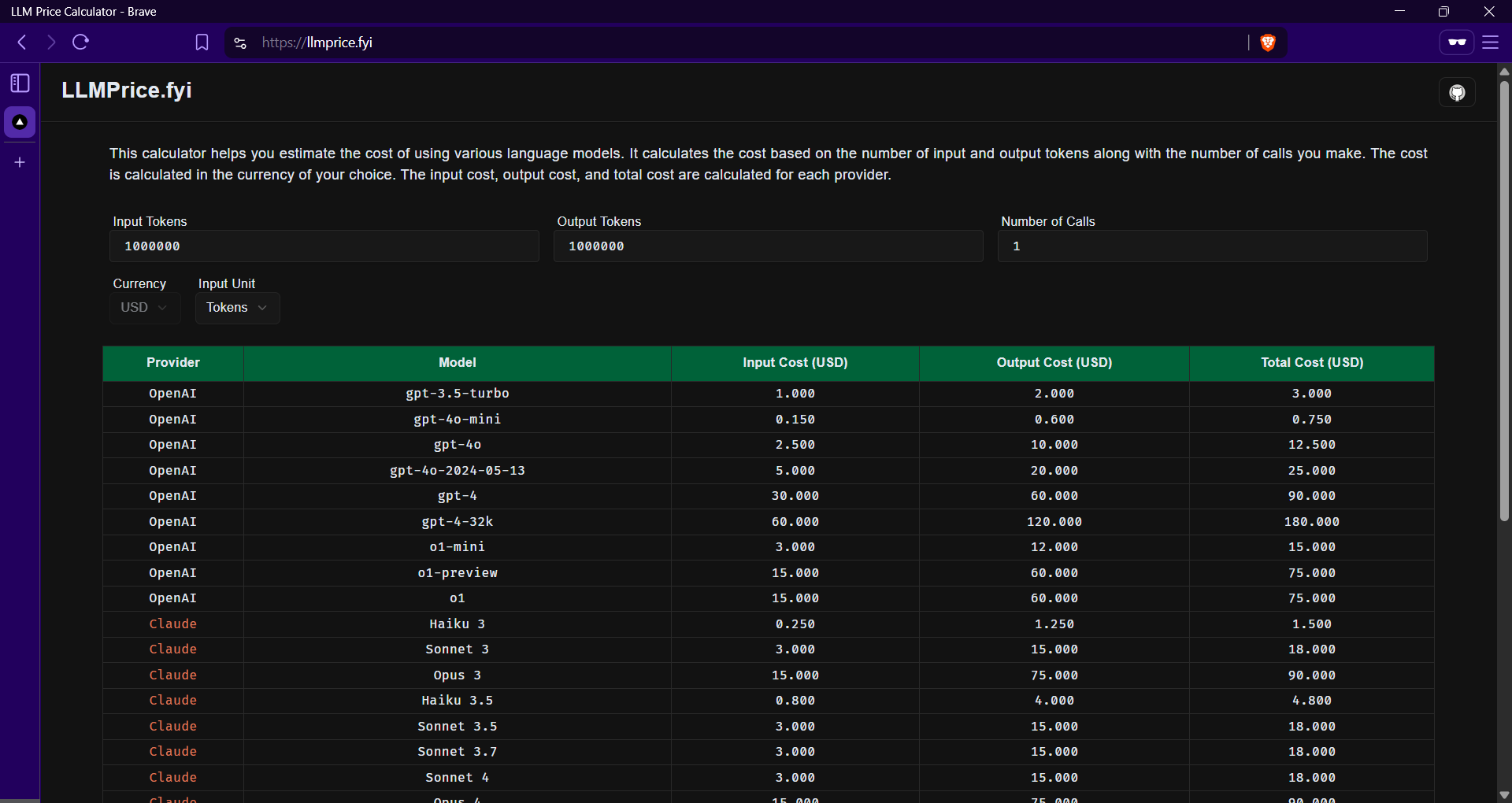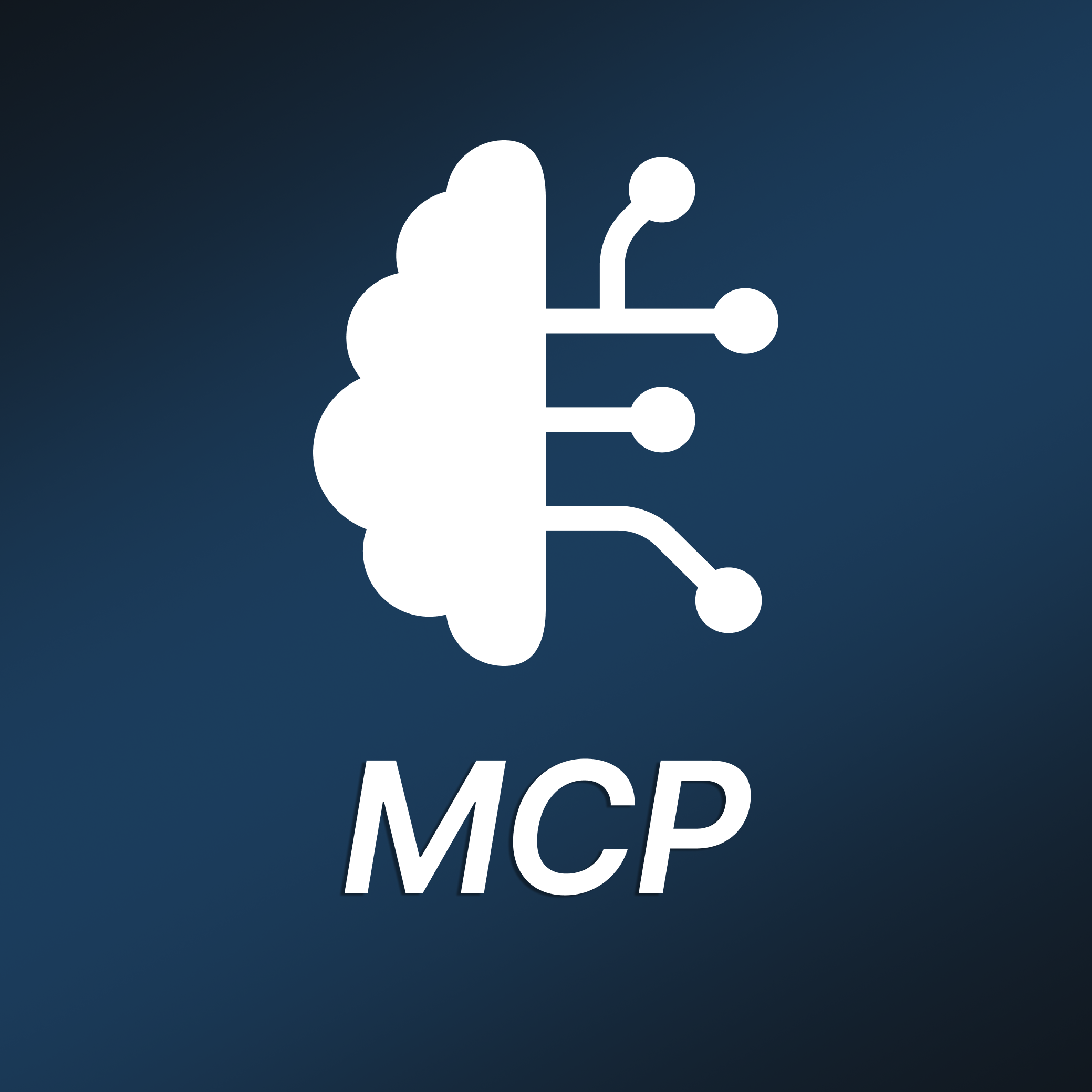SelfHostLLM
Alternatives
0 PH launches analyzed!

SelfHostLLM
Calculate the GPU memory you need for LLM inference
116
Problem
Users need to manually estimate GPU memory for self-hosted LLMs, leading to inefficient resource allocation, underutilization/overprovisioning, and inaccurate concurrency planning.
Solution
Tool to calculate GPU memory requirements and max concurrent requests using model parameters (e.g., model type, precision, context length), supporting Llama, Qwen, and Mistral for infrastructure planning.
Customers
AI Infrastructure Engineers, DevOps teams, and CTOs managing self-hosted LLM deployments.
Alternatives
Unique Features
Model-specific calculations, concurrency optimization guidance, and support for quantization/precision settings.
User Comments
Saves time in GPU allocation planning
Accurate predictions for LLM deployments
Essential for cost-effective infrastructure scaling
Simplifies model hosting decisions
Lacks integration with cloud billing APIs
Traction
Launched 2024, 1.2k+ ProductHunt upvotes, featured on AI/ML newsletters, used by 500+ companies (per website claims).
Market Size
Generative AI infrastructure market projected to reach $50.9 billion by 2028 (MarketsandMarkets).

LLM Price Calculator
A Simple no-nonsense LLM Price Calculator
5
Problem
Users need to manually calculate LLM costs using spreadsheets or provider-specific pricing pages, which is time-consuming, error-prone, and lacks multi-currency/crypto support.
Solution
A web-based LLM pricing calculator tool that automates cost calculations for input/output tokens across providers (e.g., OpenAI, Anthropic) and currencies (including crypto), providing real-time estimates in preferred currencies.
Customers
Developers, AI product managers, and financial analysts at companies integrating LLM APIs into their products, startups optimizing cloud costs, or crypto projects using AI services.
Alternatives
View all LLM Price Calculator alternatives →
Unique Features
Supports real-time currency/crypto conversions, compares costs across multiple LLM providers (e.g., GPT-4 vs. Claude), and offers API integration for automated cost tracking.
User Comments
Saves hours on manual calculations
Essential for budgeting LLM projects
Crypto conversion feature is unique
Simplifies multi-provider cost comparisons
Accuracy critical for financial planning
Traction
Launched on Product Hunt in 2024 with 500+ upvotes, integrated by 50+ early adopters, and actively used by crypto-focused AI startups.
Market Size
The global generative AI market, which drives LLM adoption, is projected to reach $66.62 billion by 2024 (Statista).

Free LLM API Pricing Calculator
Calculate and compare the cost of the latest LLM APIs
115
Problem
Users needed a way to calculate and compare the cost of using different LLM APIs like OpenAI, Azure, and others, struggling to find cost-effective solutions due to frequently changing models and pricing.
Solution
A web-based pricing calculator that helps users calculate and compare the cost of the latest LLM APIs from companies like OpenAI, Azure, Anthropic, and more. Users can see cost-effectiveness and make better budgeting decisions.
Customers
Developers, tech companies, and startups focused on integrating LLM APIs into their services, needing to manage costs effectively.
Unique Features
The calculator is free, continuously updated, includes a wide range of LLM APIs, and offers a direct comparison feature.
User Comments
Simplified the API pricing comparison process.
Highly accurate and always updated.
Essential tool for budget planning in tech projects.
User-friendly interface and quick results.
Great for startups and independent developers.
Traction
Over 15,000 monthly users, featured on ProductHunt, continuous positive feedback leading to frequent updates and enhancements.
Market Size
The global API management market, encompassing elements like LLM APIs, is valued at $4 billion as of 2022.

calculator, free online calculator
Calculator.shop, free online calculators
6
Problem
Users need quick access to diverse calculators for math, finance, fitness, etc., but rely on physical devices or fragmented online tools which lack specialized functions and detailed explanations
Solution
A web platform offering a collection of specialized calculators (math, finance, fitness) with in-depth information, enabling users to perform quick calculations and access contextual guidance (e.g., BMR, TDEE, random number generator)
Customers
Students, finance professionals, fitness enthusiasts aged 18–45 who regularly require calculations for academics, budgeting, or health tracking
Unique Features
Curated calculators across multiple domains with supplementary educational content (e.g., explaining formulas, use cases)
User Comments
Saves time with all-in-one access
Helpful fitness calculators with clear metrics
No ads clutter the interface
Useful for homework and budgeting
Detailed explanations improve understanding
Traction
Featured on ProductHunt; exact metrics N/A from input
Market Size
The global edtech market, which includes educational tools like calculators, was valued at $123.4 billion in 2022 (Grand View Research)
Calculators by Listrove
Precision Calculators for Every Need
3
Problem
Users rely on multiple tools or manual calculations for tasks like grade calculation, measurement conversion, and financial equations, leading to inefficiency and time-consuming processes.
Solution
A web-based platform with a growing collection of specialized calculators, allowing users to access tools for grades, measurements, finance, and more in one place.
Customers
Students, professionals, and individuals requiring quick, accurate calculations for academic, work, or personal needs.
Alternatives
View all Calculators by Listrove alternatives →
Unique Features
Centralized access to niche calculators (e.g., grade, financial) with a focus on precision and ease of use.
User Comments
Simplifies complex calculations
Saves time compared to manual methods
User-friendly interface
Useful for students and professionals
Regularly adds new calculators
Traction
Launched on ProductHunt (date unspecified); traction details (users, revenue) not publicly available.
Market Size
The global educational technology market, which includes calculator tools, is projected to reach $429.5 billion by 2030.

Universal Memory MCP
Your memories, in every LLM you use.
423
Problem
Users' memories (e.g., chat histories, preferences) are only available within ChatGPT, creating fragmentation and inaccessible across other LLMs.
Solution
A universal memory synchronization tool enabling users to sync memories across all LLMs via one command, eliminating platform lock-in with no logins or paywalls.
Customers
Developers, AI researchers, and tech professionals who regularly interact with multiple LLMs for work or experimentation.
Alternatives
View all Universal Memory MCP alternatives →
Unique Features
Cross-LLM memory portability without requiring accounts/subscriptions, functioning as middleware between user data and AI models.
User Comments
Simplifies multi-LLM workflows
Eliminates repetitive context-setting
Concerns about data privacy controls
Wish for selective memory sharing
Appreciate open architecture
Traction
Newly launched (exact metrics unspecified), positioned in growing LLM interoperability niche. Comparable tools like LangChain reached 50K+ developers within 6 months.
Market Size
LLM middleware market projected to reach $2.6 billion by 2027 (MarketsandMarkets) as enterprises adopt multi-model strategies.

Concrete Calculator
Calculate concrete volume, materials needed
5
Problem
Users manually calculate concrete volume and materials needed, which is time-consuming and prone to errors.
Solution
A web-based concrete calculator tool that automatically computes volume, materials, and costs instantly with no signup required.
Customers
Construction professionals (contractors, engineers), DIY enthusiasts, and homeowners planning small-scale projects.
Unique Features
Fast, accurate calculations; free access without registration; integrates material and cost estimation.
User Comments
Simplifies project planning
Saves time on manual math
Accurate material estimates
User-friendly interface
No account needed
Traction
No specific MRR/user data available; listed on ProductHunt with general visibility in construction niche.
Market Size
The global construction software market is projected to reach $1.8 billion by 2027 (Statista, 2023).

Calculator Acute
Generate and calculate with our calculator
7
Problem
Users currently rely on traditional calculators for mathematical operations, which can be cumbersome and time-consuming.
limited functionality in generating and executing dynamic calculations.
Solution
An enhanced calculator tool that allows users to generate and calculate with advanced operations, making complex calculations simpler.
Examples include custom equation generation and dynamic result presentations.
Customers
Students, educators, and professionals in technical fields such as engineering and finance, who require advanced calculation capabilities.
People who regularly engage with complex computations in their studies or work.
Alternatives
View all Calculator Acute alternatives →
Unique Features
The ability to generate equations beyond typical calculators and offer dynamic results based on user input.
User Comments
Easy to use with intuitive interface.
Helpful for complex calculations in professional settings.
Limited in terms of symbols for some advanced operations.
Great for visualizing results.
Requires more integration with external tools for broader use.
Traction
Newly launched with growing recognition on ProductHunt.
Engaging a niche audience looking for advanced calculation tools.
Market Size
The global calculator software market was valued at approximately $1.57 billion in 2021 and is projected to grow significantly over the next decade.
Problem
Users need to integrate different LLM providers manually, leading to complex integration processes and high development overhead when switching models
Solution
A developer tool (router) that lets users switch between LLM providers via a single string parameter, e.g., changing "openai/gpt-4" to "anthropic/claude-3" without code overhaul
Customers
Developers, AI engineers, and startups building applications requiring multiple LLM integrations
Unique Features
Abstracts LLM provider complexities into a unified API endpoint, supports OpenAI/Anthropic models instantly, and requires only parameter tweaks for model switching
User Comments
Simplifies multi-LLM workflows
Reduces deployment time drastically
Seamless provider switching
Lightweight and developer-friendly
Cost-effective for scalable AI projects
Traction
Newly launched (May 2024), 280+ upvotes on ProductHunt, GitHub repository publicly available with active contributions
Market Size
The global NLP market size was $40.8 billion in 2023 (Grand View Research), driven by LLM adoption

Final Grade Calculator
Calculate what you need on your final exam to ace the class
9
Problem
Students manually calculating final exam targets and dealing with manual errors and inefficiency in weighted grade scenarios
Solution
Web tool allowing users to calculate final exam target scores automatically, with features like weighted grades and conversions between percentages/letters/GPA
Customers
High school and college students aiming to track grade requirements for academic goals
Unique Features
Open-source, instant results, no sign-up, support for weighted grading systems, grade conversions
User Comments
Free and easy to use
Accurate calculations
Saves time before exams
No account required
Transparent open-source model
Traction
Open-source on GitHub, listed on ProductHunt, unspecified user count but positioned as 'fast, no sign-up' tool
Market Size
US education market has 15 million high school and 20 million college students annually requiring grade calculations
